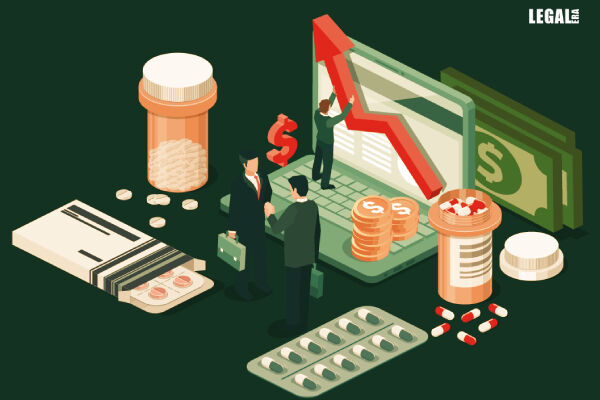
The directive aims to reduce drug prices by 30 to 80 percent in the country
Recently, US President Donald Trump ordered 17 pharmaceutical companies to deliver on his May Executive Order 14297, ‘Delivering Most-Favored-Nation (MFN) Prescription Drug Pricing to American Patients.’
He offered the companies 60 days to extend the MFN pricing to all Medicaid patients for the newly launched drugs. It meant returning increased revenues from negotiations with countries to American patients and providing direct purchasing options at MFN rates.
The letters were sent to the CEOs of Novo Nordisk, Eli Lilly, GlaxoSmithKline, Abbvie and Pfizer, Amgen, AstraZeneca, Boehringer Ingelheim, Bristol Myers Squibb, EMD Serono, Genentech, Gilead, Johnson & Johnson, Merck, Novartis, Regeneron and Sanofi.
The directive aims to reduce drug prices almost immediately, by 30 to 80 percent and mandate U.S. citizens to pay the same price as the nation paying the lowest price. In a social media post, President Trump said, “As a result, prices in other developed countries will rise to equalize.”
In the US, high drug prices are often blamed on patents, but many in the IP realm have argued the situation is far more complex.
Recently, Gene Quinn, the CEO and Founder of IPWatchdog stated, “One of the chief reasons Americans pay more is the existence of middlemen known as pharmacy benefit managers (PBMs), which only exist in the US. These PBMs do nothing to discover or innovate drugs, and do not sell to consumers, but somehow take a staggering 50 percent of the overall cost of pharmaceutical drugs. The other major differentiator is that research and development is paid for almost exclusively by Americans because other rich Western countries implement strict price controls and refuse to pay for it.”
Meanwhile, industry expert Sherry Knowles also provided clarity on the nuances of the U.S. drug pricing problem.
She remarked, “Trump’s order has been met with skepticism by the industry and others, with Stephen J. Ubl, the president and CEO of PhRMA, saying in statements made to the press in May that ‘importing foreign prices will cut billions of dollars from Medicare with no guarantee that it helps patients or improves their access to medicines.’”
In May, the U.S. Chamber of Commerce (CoC) agreed with President Trump’s view that foreign price control unfairly shifted the price burden to the U.S.
However, recently, Neil Bradley, the Executive Vice President and Chief Policy Officer of the CoC stated, “Importing foreign price controls into the U.S. healthcare system will harm patients by delaying access to new life-saving medicines. Our research highlights that such policies could lead to a 75 percent decline in U.S. clinical trial activity, jeopardizing innovation in critical areas like cancer, obesity, and rare and chronic diseases.”
Meanwhile, patient advocacy groups have viewed President Trump’s order with cautious optimism.
The Patients for Affordable Drugs Now thanked the President for making it “clear that the administration recognizes that drug companies are gaming the system to keep prices high in the U.S.”
However, it added, “The letters still leave far too much room for the industry to protect its profits while also raising prices for patients abroad.”
The statement raised questions about how the letters’ mandates would be enforced in practice, including “how would the policy work when Medicaid’s Best Price is already lower than the MFN price?”
The directives to the pharmaceutical companies threatened them with consequences. The White House fact sheet highlighted that if the companies did not respond, “The federal government will deploy every tool in our arsenal to protect American families from continued abusive drug pricing practices.”
It added that the companies ‘fell short’ since the Executive Order was first published and that the letters were meant to put further pressure on the industry.
The fact sheet further reads, “From this point forward, President Trump will only accept from drug manufacturers a commitment that provides American families immediate relief from vastly inflated drug prices and an end to the freeriding by European and other developed nations on American innovations.”
The President had remarked, “American citizens are effectively subsidizing socialism abroad with skyrocketing prices at home. So we would spend tremendous amounts of money to provide inexpensive drugs to another country. And when I say the price is different, you can see some examples where the price is beyond anything – four times, five times different.”
However, some analysts termed the pricing proposals ‘mathematically impossible.’